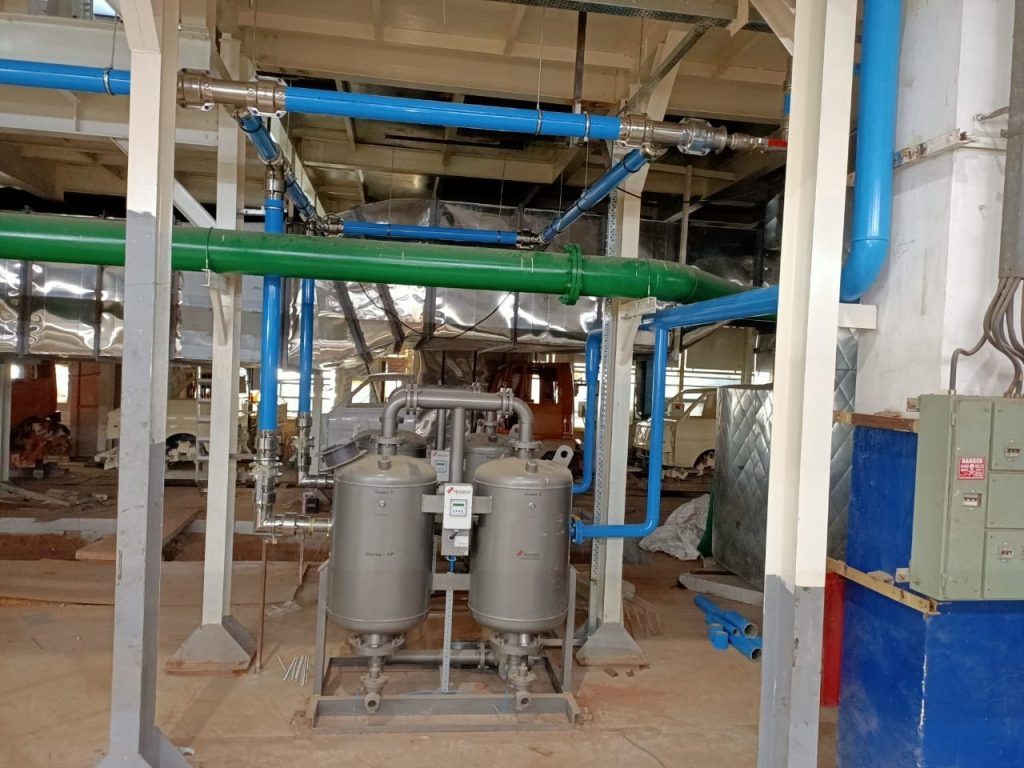Aluminum compressed air piping has become increasingly popular in industrial environments due to its numerous safety advantages compared to traditional piping materials such as steel or copper. One of the primary reasons aluminum piping is considered safer is its inherent resistance to corrosion. Unlike steel, which can rust over time when exposed to moisture and contaminants present in compressed air systems, aluminum forms a natural oxide layer that protects the material underneath. This corrosion resistance reduces the risk of pipe failure caused by rust-related weakening, which in turn helps prevent leaks, bursts, and potential workplace hazards associated with sudden pipe ruptures. In industries where compressed air is a vital utility, such reliability is critical to maintaining safe operations and avoiding costly downtime. Another safety benefit of aluminum compressed air piping lies in its lightweight nature. Aluminum is significantly lighter than steel, making it easier and safer for workers to handle and install.. Additionally, the lightweight characteristic of aluminum allows for quicker installation, minimizing the time workers spend in potentially hazardous environments.

This aspect is especially valuable in industrial settings where timely completion of projects can reduce exposure to other operational risks. Aluminum piping also offers superior strength and durability relative to its weight. It can withstand high pressures common in compressed air systems without compromising integrity, which is essential for safety in environments where pressure fluctuations and surges occur frequently. The material’s toughness helps prevent failures such as bursting, which could otherwise cause injuries or damage to equipment. Moreover, aluminum pipes have smooth internal surfaces, which reduce air resistance and prevent the accumulation of contaminants and moisture that might compromise air quality or clog the system. Aluminum pipe systems are typically joined using mechanical fittings rather than welding or threading. These fittings ensure strong, leak-free connections without the need for heat or hazardous chemicals during assembly. This reduces fire hazards and exposure to toxic fumes during installation, which are common risks when welding steel pipes. The ease of assembly and disassembly with mechanical fittings also allows for safer and faster maintenance, enabling workers to quickly isolate and repair damaged sections without shutting down entire systems.
In addition to the physical and chemical safety benefits, aluminum piping contributes to an overall safer working environment by reducing noise levels. Compressed air systems can generate significant noise, which poses a risk of hearing damage over time in industrial settings. Aluminum’s vibration dampening properties help absorb sound better than steel pipes, leading to quieter operations and improved worker comfort and safety. Lower noise levels also improve communication and awareness on the shop floor, which can reduce the likelihood of accidents caused by miscommunication or distractions. Finally, aluminum piping systems have a longer service life and require less frequent maintenance compared to steel. This means fewer opportunities for system failure or accidents due to degraded materials, and less exposure to hazards during inspection or repair work. The combination of corrosion resistance, strength, ease of installation, noise reduction, and durability makes aluminum compressed air piping a safer, more reliable choice for demanding industrial environments. As safety continues to be a paramount concern in modern industry, the shift toward aluminum piping reflects a practical, effective strategy for protecting workers, equipment, and overall operational integrity.

